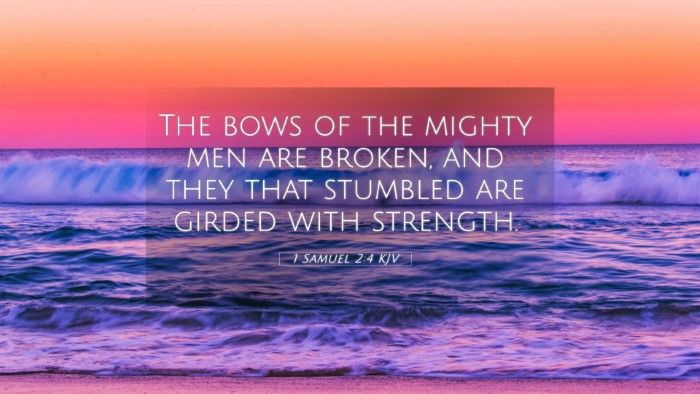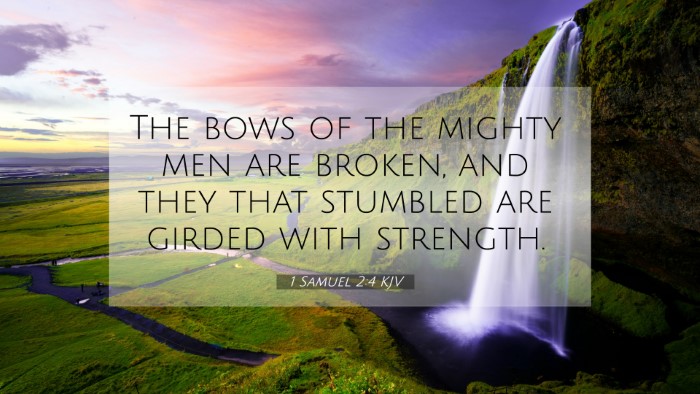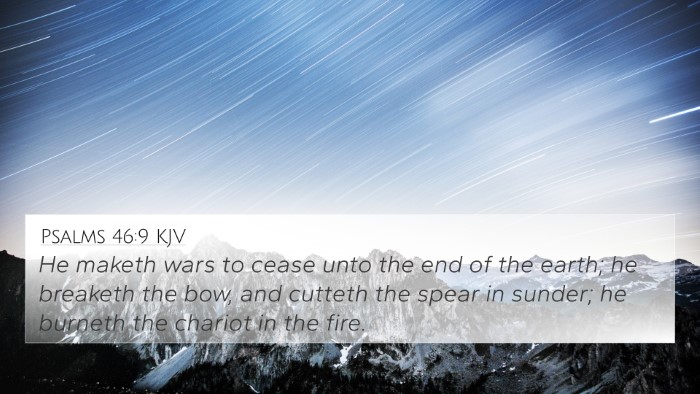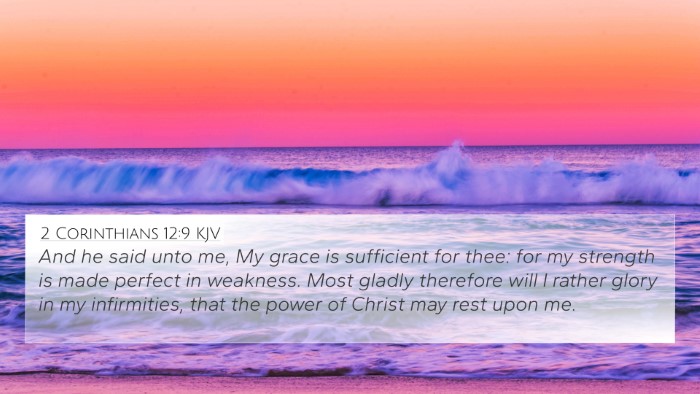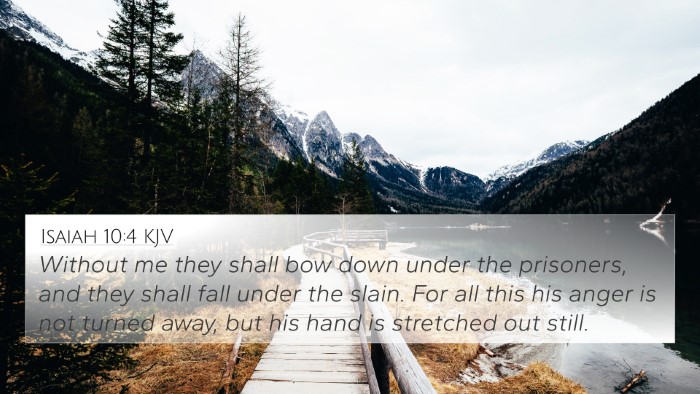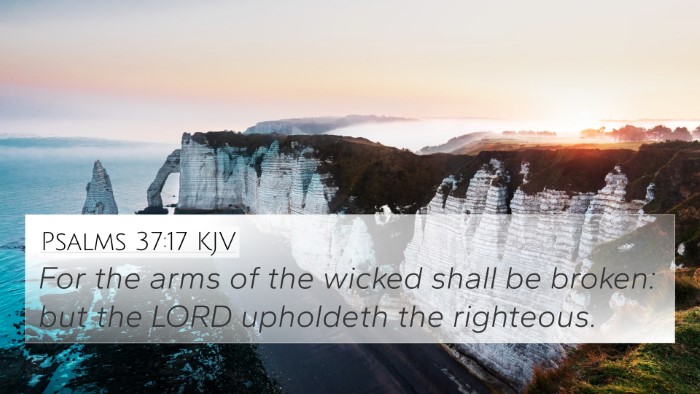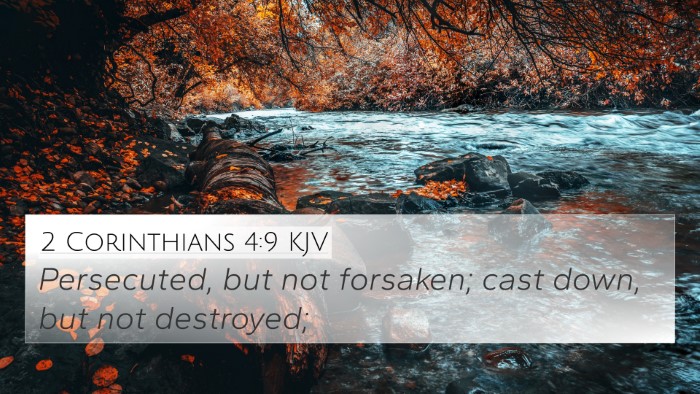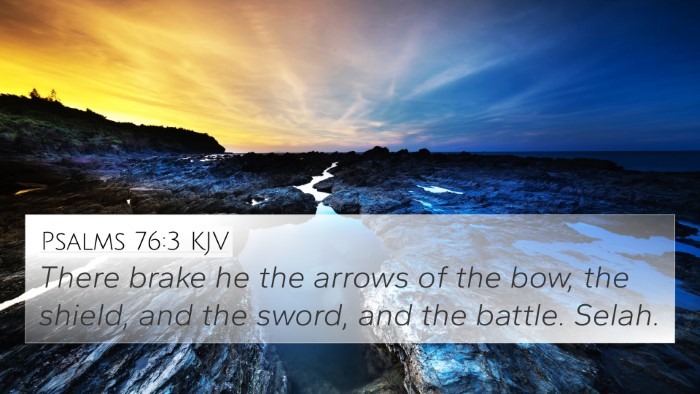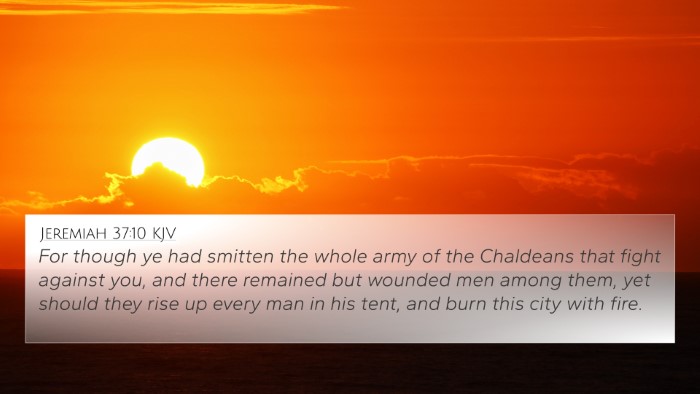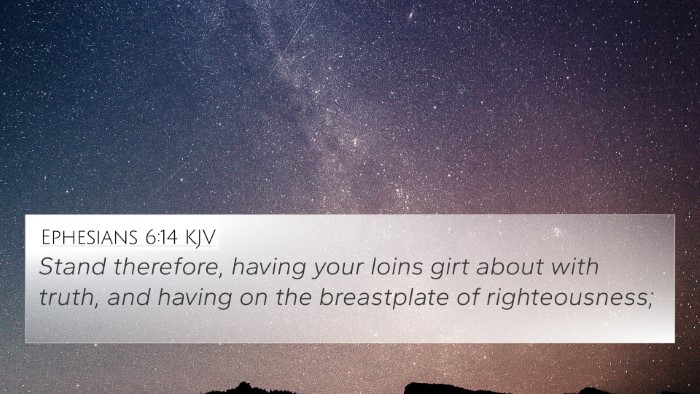Understanding 1 Samuel 2:4
Verse: "The bows of the mighty men are broken, and they that stumbled are girded with strength." (1 Samuel 2:4)
Summary of Meaning
This verse, nestled within Hannah's prayer of praise, captures the profound theme of divine reversal, where God upends human expectations and circumstances. The might of the strong is contrasted with the strength bestowed upon the weak, illustrating God’s sovereignty in changing fortunes.
Insights from Public Domain Commentaries
-
Matthew Henry:
Hannah’s words reflect the transient nature of human power and pride. God's intervention reveals that those who seemingly hold strength—symbolized by their bows—may find themselves broken, while the weak, who have stumbled, receive divine empowerment. This theme is resonant throughout scripture, emphasizing that God sustains the humble and opposes the proud.
-
Albert Barnes:
The phrase indicates a complete reversal of circumstances. The 'mighty men' who rely on their own strength are ultimately defeated, while those deemed powerless receive God’s strength. This speaks to the overarching biblical theme of salvation and deliverance, where God's help comes in unexpected ways, confounding human wisdom.
-
Adam Clarke:
Clarke adds that this verse exemplifies God's justice, balancing the scales of power and humility. He suggests that Hannah’s proclamation functions as a prophetic warning about the eventual downfall of the arrogant and the elevation of the humble, foreshadowing the ministry of Jesus, who taught that the last shall be first.
Cross-References to 1 Samuel 2:4
- Luke 1:52-53: "He hath put down the mighty from their seats, and exalted them of low degree. He hath filled the hungry with good things; and the rich he hath sent empty away." - Echoes the theme of divine reversal.
- Matthew 23:12: "And whosoever shall exalt himself shall be abased; and he that shall humble himself shall be exalted." - Direct affirmation of humility leading to exaltation.
- James 4:6: "But he giveth more grace. Wherefore he saith, God resisteth the proud, but giveth grace unto the humble." - Highlights God’s opposition to pride and support for the humble.
- Psalm 34:18: "The Lord is nigh unto them that are of a broken heart; and saveth such as be of a contrite spirit." - God’s compassion aligns with strengthening the humble.
- Proverbs 3:34: "Surely he scorneth the scorners: but he giveth grace unto the lowly." - Reinforces the principle of divine grace in response to humility.
- Isaiah 40:29: "He giveth power to the faint; and to them that have no might he increaseth strength." - A direct link to God providing strength to the weak.
- 1 Peter 5:5: "Likewise, ye younger, submit yourselves unto the elder. Yea, all of you be subject one to another, and be clothed with humility: for God resisteth the proud, and giveth grace to the humble." - Stresses the importance of humility in receiving God’s favor.
Thematic Concepts
This verse encapsulates several vital biblical themes, including:
- Divine Justice: God orchestrates justice by lifting the lowly and casting down the mighty.
- The Role of Faith: Trusting in God often leads to unexpected strength in adversity.
- Reversal of Human Expectations: God's ways are often contrary to human expectations, emphasizing His sovereignty.
- Humility and Exaltation: An overarching theme in scripture is that true elevation comes through humility.
Tools for Further Study
To further explore the connections in scripture, consider utilizing:
- Bible concordances for in-depth word studies.
- Bible cross-reference guides that provide thematic links.
- Cross-reference Bible study materials for a comprehensive examination of related verses.
Conclusion
1 Samuel 2:4 serves as a potent reminder of God's ability to transcend human power dynamics. Through understanding this verse and its connections, believers can deepen their comprehension of God's justice, grace, and the transformative power of humility in one's faith journey.

